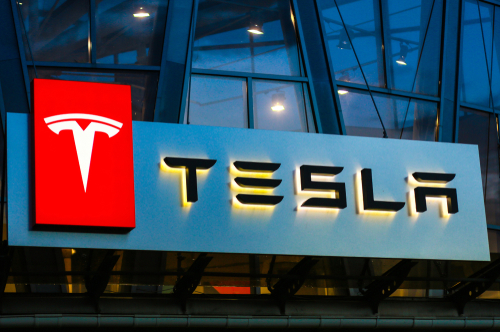This site uses cookies to provide you with a great user experience. By using BondbloX, you accept our use of cookies.
| | | | | | | | | | | | | | | | | | | | | | | | | | | | | | | | | | | | | | | | | | | | | | | | | | | | | | | | | | | | | | | | | | | | | | | | | | | | | | | | | | | | | | | | | | | | | | | | | | | | | | | | | | | | | | | | | | | | | | | | | | | | | | | | | | | | | | | | | | | | | | | | | | | | | | | | | | | | | | | | | | | | | | | | | | | | | | | | | | | | | | | | | | | | | | | | | | | | | | | | | | | | | | | | | | | | | | | | | | | |
Bond Market News
Boeing and Tesla Report Earnings
January 27, 2022

Boeing reported its third consecutive annual loss, at ($4.3bn) for 2021 vs. ($11.3bn) in 2020. For the fourth quarter, net losses were at ($4.2bn) vs. ($8.4bn) during the year ago period. Revenues for the quarter were up 3% YoY to $14.8bn while annual revenues climbed 7% to $62.3bn. One positive for Boeing came in the form of cash generation in the fourth quarter, the first time in nearly three years thanks to a jump in 737 Max deliveries, the aircraft which was grounded for about two years after fatal crashes in 2018 and 2019. Boeing took a pretax charge of $3.5bn during quarter on its Dreamliner. It expects $2bn in further costs after slashing its production with most of it being incurred by the end of 2023. Free cash flows were at $494mn in Q4 as compared to an outflow of $4.3bn in Q4 2020. At the end of Q4, cash and marketable securities balances stood at $16.2bn and overall debt balances at $58.1bn. Boeing’s bonds were slightly lower with its 3.5% 2039s down 0.7 points at 96.3, yielding 3.8%.
Tesla reported record results with revenues up 65% YoY during Q4 to $17.7bn. Automotive revenues totaled $15.97bn while energy generation and storage revenue was $688mn and services/other contributing the remainder. Total vehicle production in Q4 was at 305,840, up 70% YoY with deliveries rising 71% to 308,650. Net income stood at $2.3bn, up 760% with an improvement in Q4 gross margins to 27.4% from 26.6% in Q3. Elon Musk said, “We will not be introducing new vehicle models this year. We will still be parts constrained”, after highlighting chip shortages as the primary reason. Tesla’s free cash flows stood at $2.8bn, up 49% YoY and cash balances were at $17.6bn. It added that total debt excluding vehicle and energy product financing fell to $1.4bn at end-2021 from at $6.3bn at end-2020.
Go back to Latest bond Market News
Related Posts:
Boeing Cuts 787 Production on New Defect
July 14, 2021

Tesla Reports Strong Earnings With Record Quarterly Deliveries
October 21, 2021

Tesla Upgraded to BB+ by S&P, Just One Notch Shy of IG
October 25, 2021






